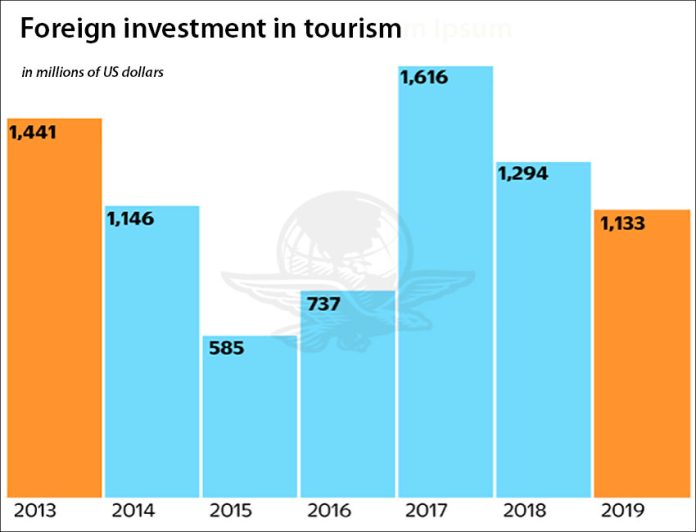The cancellation of the previous government’s Mexico City airport project, the disbandment of the Tourism Promotion Council (CPTM) and an unclear national tourism policy all contributed to a decline in foreign investment in the tourism sector last year, according to two experts.
The tourism sector received US $1.13 billion in direct foreign investment in 2019, government statistics show, a 12.4% decrease compared to the $1.29 billion that flowed into the country in 2018.
Foreign investors earmarked more for tourism in the first full year of the governments led by former presidents Felipe Calderón and Enrique Peña Nieto than they did during 2019, President López Obrador’s first full year in office.
Presenting a report to the National Tourism Business Council last week, the organization’s president, Pablo Azcárraga, criticized the government for taking decisions that have had an adverse impact on tourism investment and reduced the industry’s competitiveness.
He charged that the decision to cancel the airport at Texcoco, México state, and instead pursue a less ambitious plan to meet growing demand for airline services in the Valley of México (the government is building a new airport at an existing air force base and upgrading the Mexico City and Toluca airports) has hurt the tourism industry.
Azcárraga also said that the decision to disband the CPTM, which was the government’s tourism marketing agency, hasn’t helped the tourism sector, one of the most important contributors to GDP in Mexico. In addition, the government doesn’t have a clearly-defined tourism strategy, he claimed.
Humberto Molina, an economist at the consultancy firm Gemes who specializes in tourism, agreed that the airport cancellation and the lack of a clear national tourism policy were factors in the lower investment last year.
“There’s no clarity in Mexico about what the tourism promotion policy is,” he said, adding that the government has taken decisions and floated ideas that affect the tourism industry, such as López Obrador’s proposal to eliminate long weekends, without consulting with stakeholders.
With regard to the impact that the global outbreak of coronavirus might have on tourism in Mexico, Molina said that it’s too early to tell.
If the number of cases remains low and Mexico “manages to position itself as a safe place,” it could gain a competitive advantage over other destinations where tourists believe that there is greater danger of being exposed to the virus, he said.
However, Gerardo Herrera, an economist at the Iberoamericana University, predicted that tourism will decrease worldwide this year due to the outbreak of coronavirus, and that investment in Mexico will suffer as a result.
Source: El Universal (sp)
